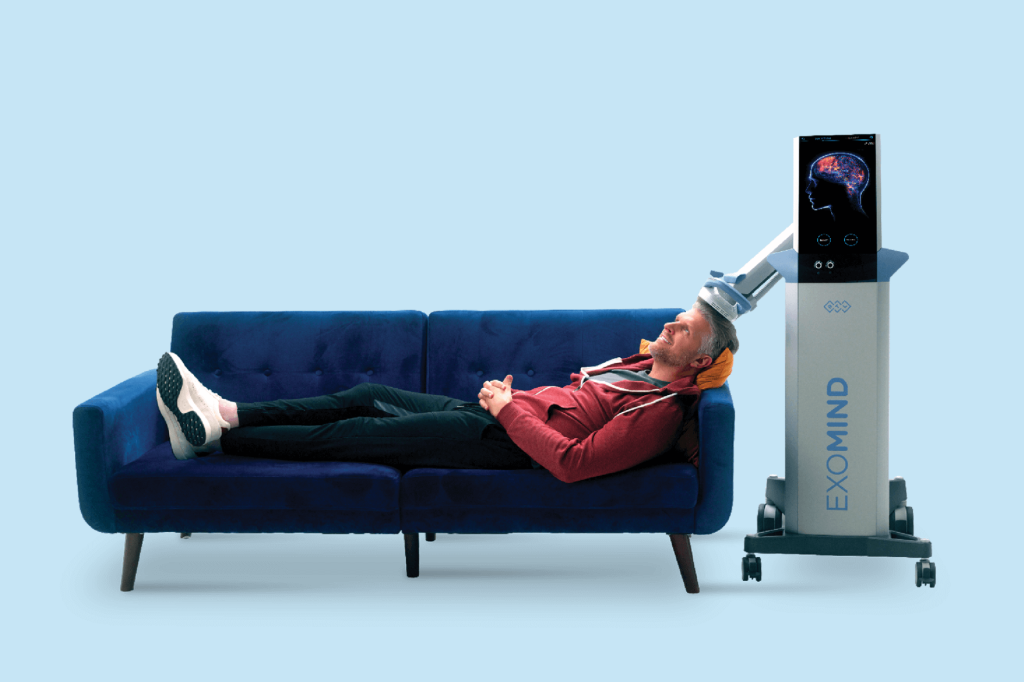Migraine Awareness Month: How Functional Neurology Treats Migraines and Post-Traumatic Headaches
June is Migraine Awareness Month, so it’s the perfect time to shed some light on the advanced tools we use to treat this condition. If you’ve found us because you’re suffering from migraines or post-traumatic headaches as a result of an accident or injury, we hope to provide you with a path to relief. Let’s explore how we can help improve your quality of life.
Migraines Vs. Headaches
Migraines are more than just severe headaches; they are a neurological condition characterized by intense, throbbing pain, often accompanied by nausea, vomiting, and sensitivity to light and sound. Migraines can significantly impact daily life, making effective management crucial.
Post-traumatic headaches can happen as a result of post-concussion syndrome (PCS) following a car accident or other head trauma. These headaches can resemble migraines or tension-type headaches and may persist long after the initial injury, leading to chronic pain and other complications.
Functional Neurology Treatment for Migraines
A thorough evaluation is the first step in functional neurology treatment. This often includes a Discovery Day, in which we evaluate factors including your family and personal medical history, brain function, movement tracking, dynamic posture, balance, coordination, nutrition, blood chemistry, and other factors that can help or hinder your recovery.
Following your evaluation, the care team at Neurohealth will develop a treatment plan designed to restore cognitive function and reduce the severity or frequency of your symptoms, allowing you to return to your daily routines and activities. Treatment may include:
- Oculomotor rehabilitation: This type of rehab can include gaze stabilization, eye tracking exercises, and other visual therapies designed to reduce the blurred vision, double vision, and light sensitivity that accompany migraines.
- Vestibular therapy: This form of therapy can include maneuvers performed by your doctor as well as specific exercises designed to restore balance and equilibrium.
- Alpha-Stim: The Alpha-Stim is a cranial electrotherapy stimulation (CES) device that stimulates nerve cells and promotes healing by mimicking electrical currents in the brain.
- Photobiomodulation: Another non-invasive and painless procedure designed to stimulate healing, improve circulation, and reduce swelling, this technique employs a class 3B laser stimulation to target specific networks in the brain.
- Concentrated Oxygen Therapy: Concentrated oxygen can help heal damaged nerves and tissue and reduce inflammation in patients struggling with ongoing pain.
- Low-Level Laser Therapy (Cold Laser): This form of therapy helps repair damaged nerves using wavelengths of light to increase cellular energy and stimulate cellular function.
- Nutritional and Lifestyle Guidance: This area of treatment includes identifying food triggers, promoting a balanced diet rich in nutrients and foods that support healing, and promoting healthy routines and sleep patterns which are crucial for migraine prevention.
During Migraine Awareness Month, it’s important to recognize the innovative and holistic approaches that functional neurology offers for treating ongoing headaches and migraine symptoms. By addressing the root causes and using neuroplasticity to promote cell regeneration and healing, we help our patients find relief and a better quality of life. If you’re struggling with migraines, you can start by scheduling a new patient evaluation or call (317) 848-6000 to explore personalized treatment options tailored to your needs.
NEAUROHEALTH SERVICES
Get back to feeling like yourself naturally. Natural treatment for neural and chronic pain.
CATEGORIES
Recent Articles
ExoMind™ : A New Era of Brain Health & Recovery
Introducing ExoMind™ at NeuroHealth Services: A New Era of Brain Health & Recovery By Dr. Brad Ralston,…
Understanding the Brain’s Cognitive Landscape
This year, we’ve explored a range of the common symptoms we treat at Neuroheatlh Services, including dizziness, headaches and…
How Does Functional Neurology Treat Vestibular Disorders?
Many of the conditions we treat at Neuroheatlh Services involve disorders of the inner ear or the…
Is Neurorehabilitation for you?
NeuroHealth provides neurorehabilitation for all ages, specializing in treatment for vertigo, migraines, post-concussion syndrome, and other neurological disorders. Contact our office today.




